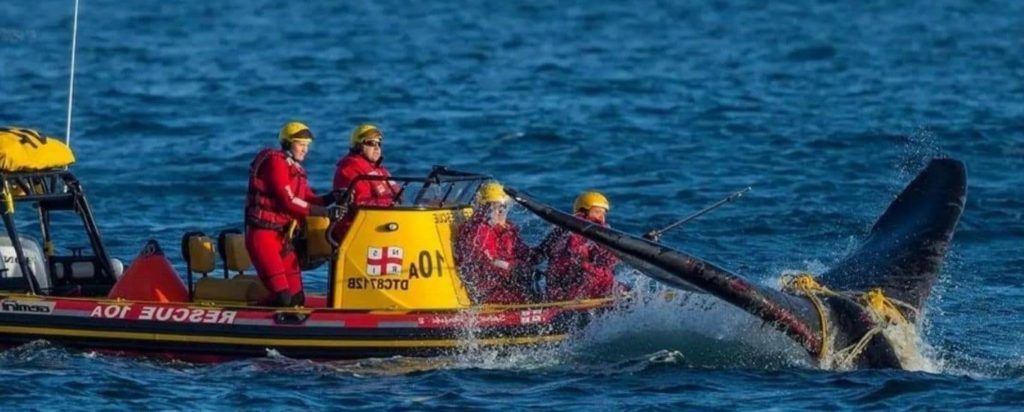Every year, more than 300,000 whales, dolphins and porpoises die after getting entangled in fishing nets. Some drown immediately, while those who survive their initial entanglement endure many painful months, ultimately bleeding out from deep wounds or dying of starvation because their ability to dive and feed is impaired.
The risk is particularly high in South African waters because humpback, southern right and Bryde’s whales all go there to mate and give birth. Once whales get entangled, they can’t dive as deep or as easily which means they catch less food and slowly but steadily become weaker, with fatal consequences. When this happens to mother whales, their calves are left alone to starve.
Sometimes, it is the calves who become entangled, and when the mother realizes she cannot help her baby, she will eventually abandon it.
The great whales of our seas barely escaped being hunted to extinction. We can’t let fishing gear entanglements push them over the edge of extinction. We can have a positive impact – we can save lives – but we need your help.
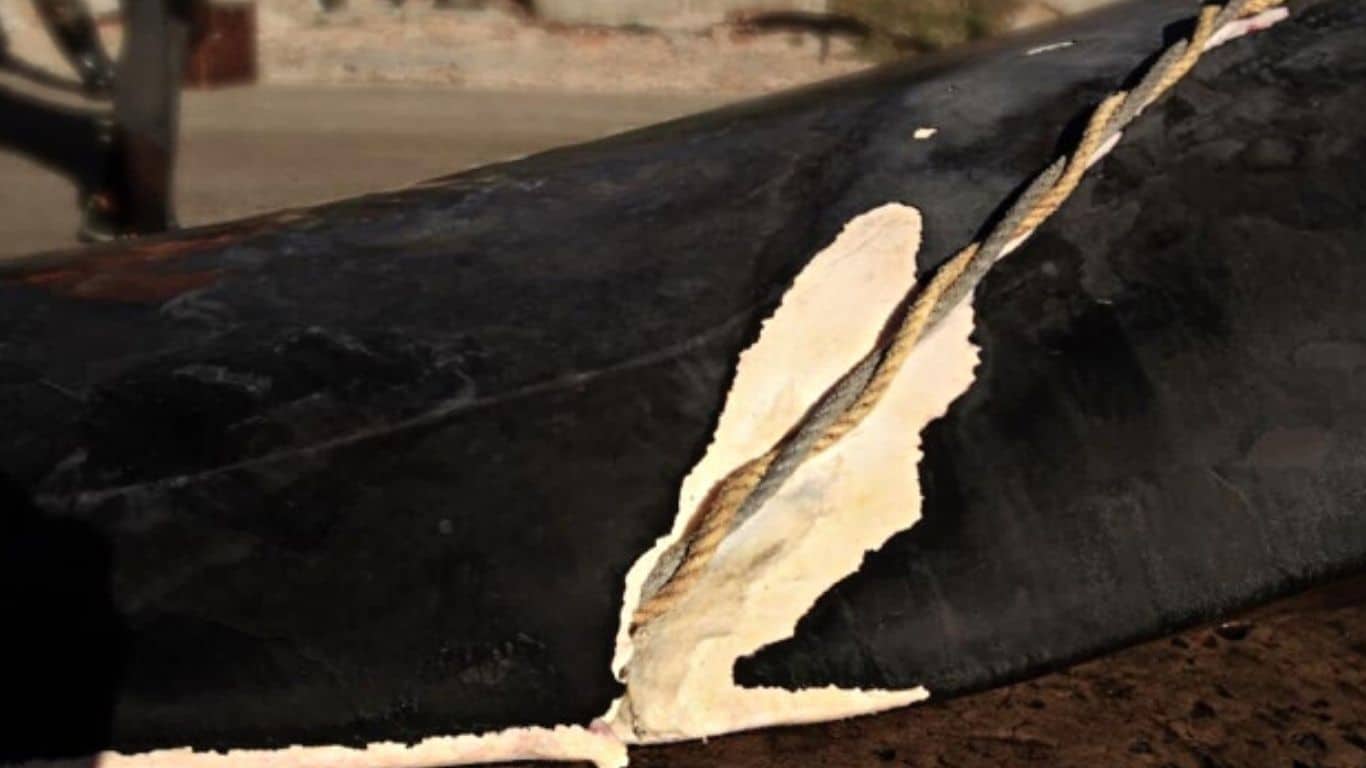 Whale died from octopus fishing line
Whale died from octopus fishing line
As the international fishing industry grows, the problem is getting worse. Fortunately, there are brave and dedicated expert teams who put their lives on the line to help free entangled whales. Our partner, the National Sea Rescue Institute (NSRI), responds anywhere along the 1,680-mile (2,700-kilometer) South African coastline to free whales from life-threatening entanglements.
These highly trained teams are on 24-hour standby: as soon as they get a report of an entangled whale, they take to the seas.
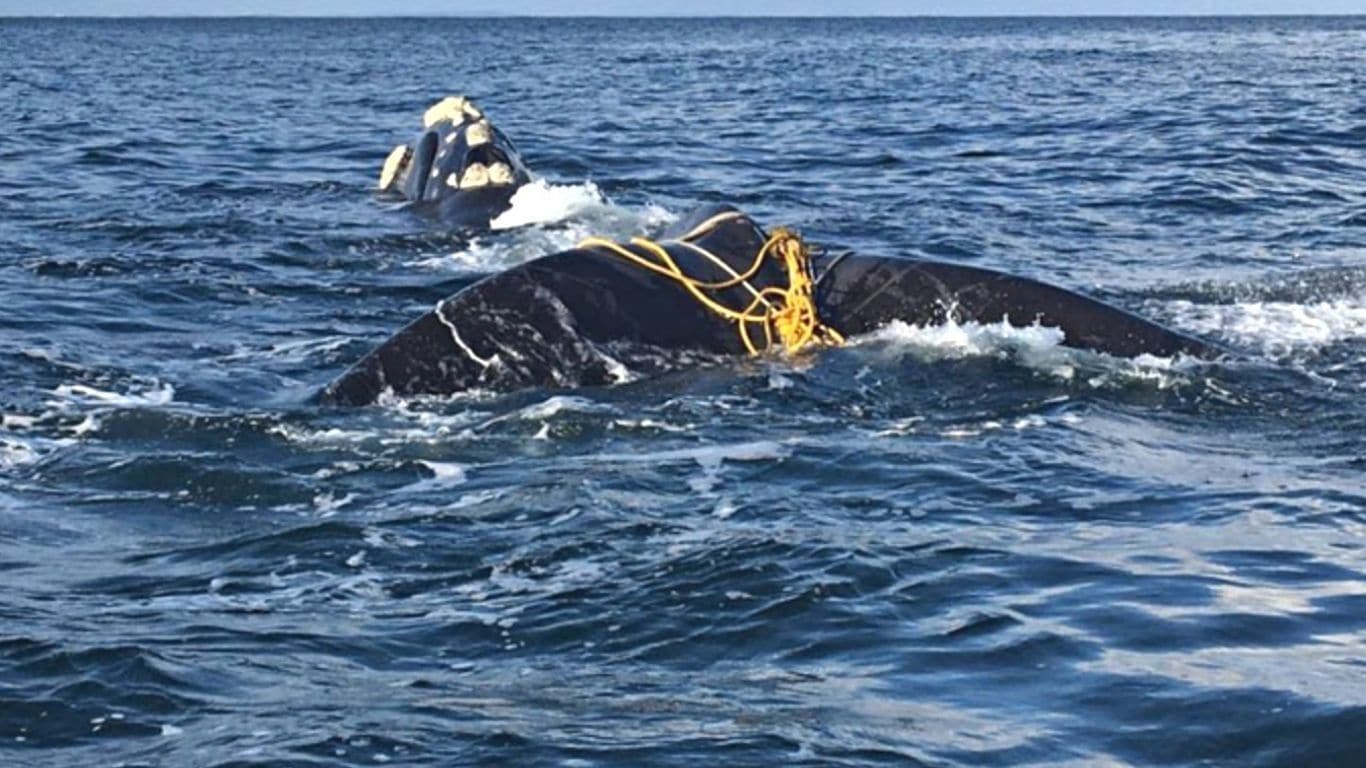
It is a dangerous job, requiring skill and rigorous training. NSRI volunteer teams must get close to stressed, giant wild animals in often wild open seas. Using specially designed knives and hooks at the end of long poles, as well as working lines and kedging buoys, they free the whales from the ropes and nets while being careful to not cause them further injury.
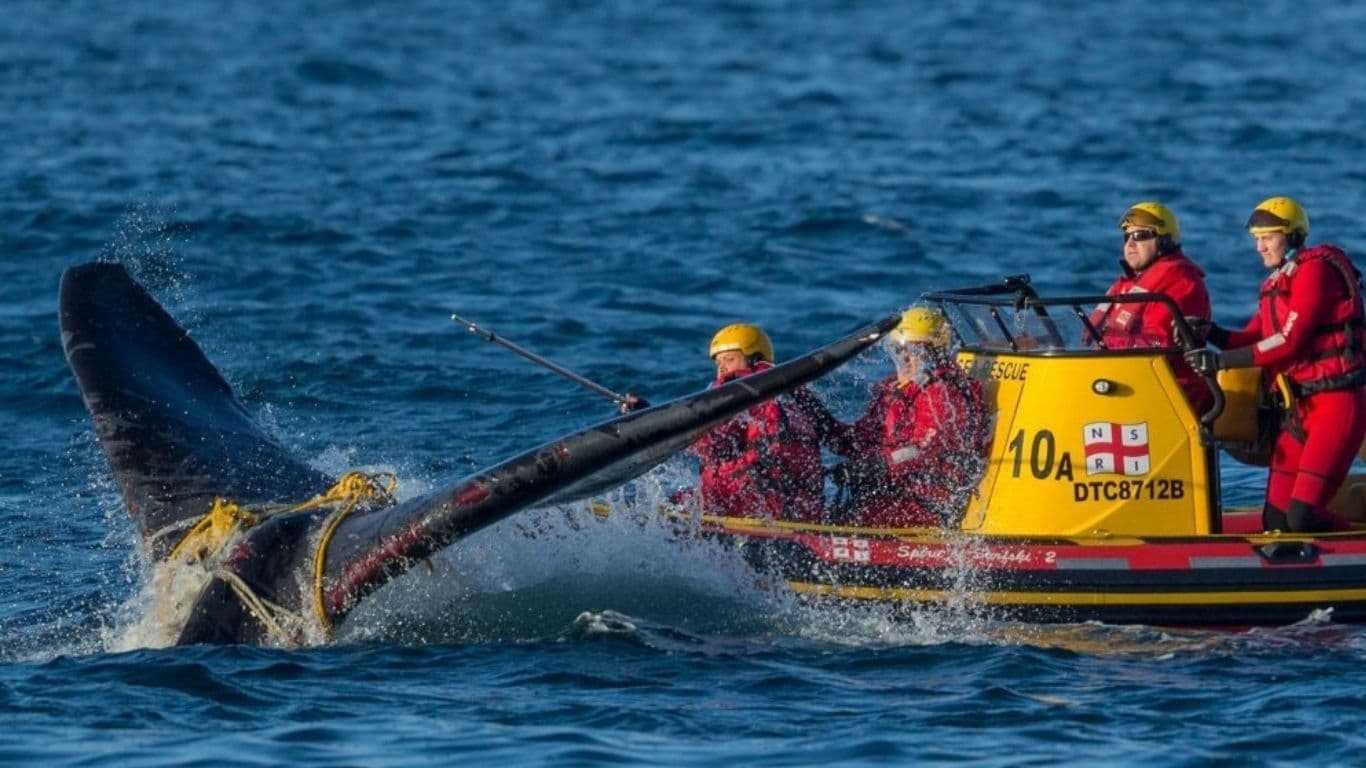
Sometimes an entangled whale is spotted and the situation reported, but the whale cannot be found. When this happens, additional disentanglement stations along the coast spring into action to find the struggling creature before it’s too late. NSRI says it is getting more reports each year of entangled whales, but there are not enough teams to respond to them all.
NSRI needs more teams and with your support, we have promised to help.
Freeing whales requires specialized equipment, and volunteers need extensive training. If we can raise $4,500 (£3,400), we can purchase a new whale-disentanglement kit for NSRI and provide expert training for 10 candidates.
Disentanglement procedures are filmed to give researchers valuable information about the identity of the animal, the damage caused by the entanglement and the size and species of the whale. The teams also recover the nets, buoys and ropes causing the entanglement so that skin samples can be extracted to record DNA information in the research database.
We must help grow our whale-saving network so we can save more whale lives. Please, will you help today?
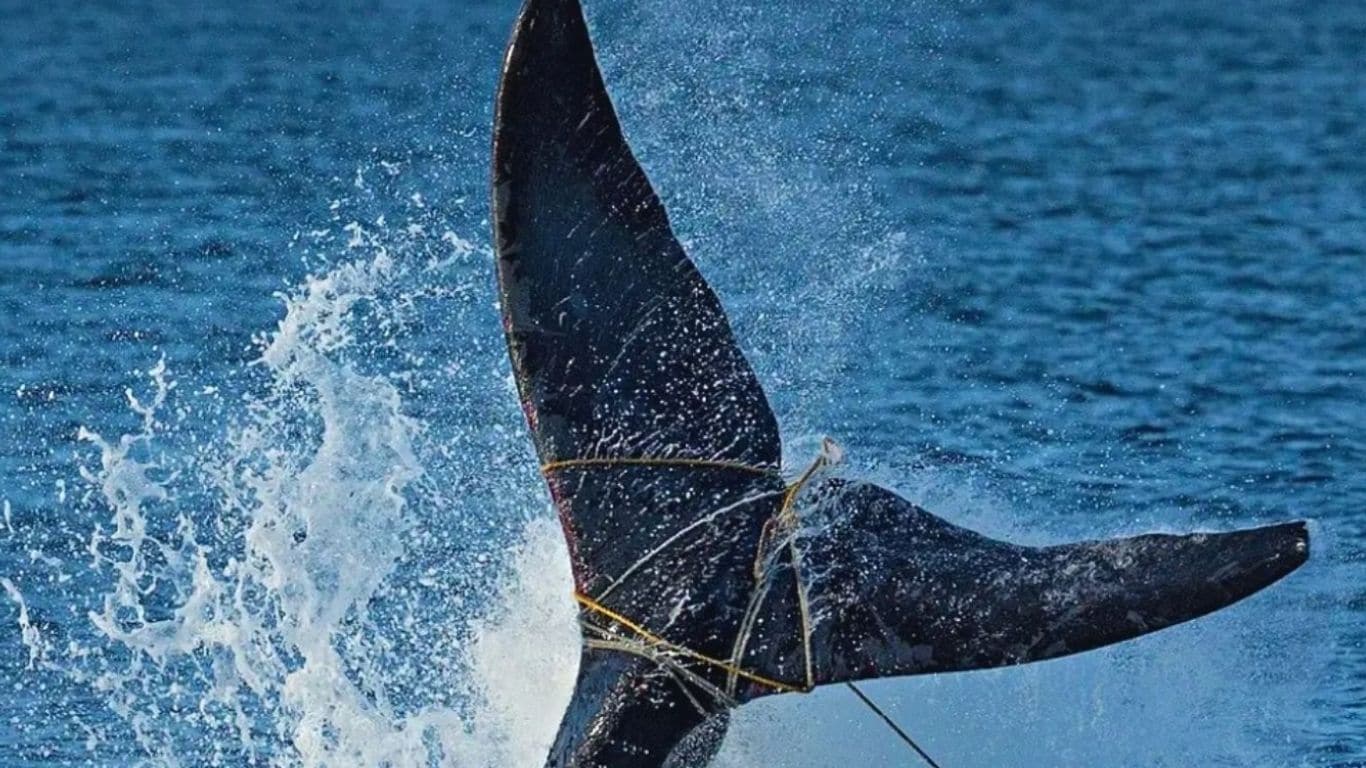
Climate change, habitat loss, pollution, loss of food sources, toxic substances, sonar testing and incidental by-catch are just some of the dangers these majestic animals still face. Global warming and changes in food availability mean these whales are spending longer periods in waters around Southern Africa where they birth their calves.
The whale birthing season in South Africa is fast approaching, and we MUST make sure the whale disentanglement teams at the various stations along the country’s coastline are fully equipped and have the correct training to respond rapidly to all whale-entanglement reports.
Please, help us raise enough funds to provide vital training and specialized knives and gear by donating right now.
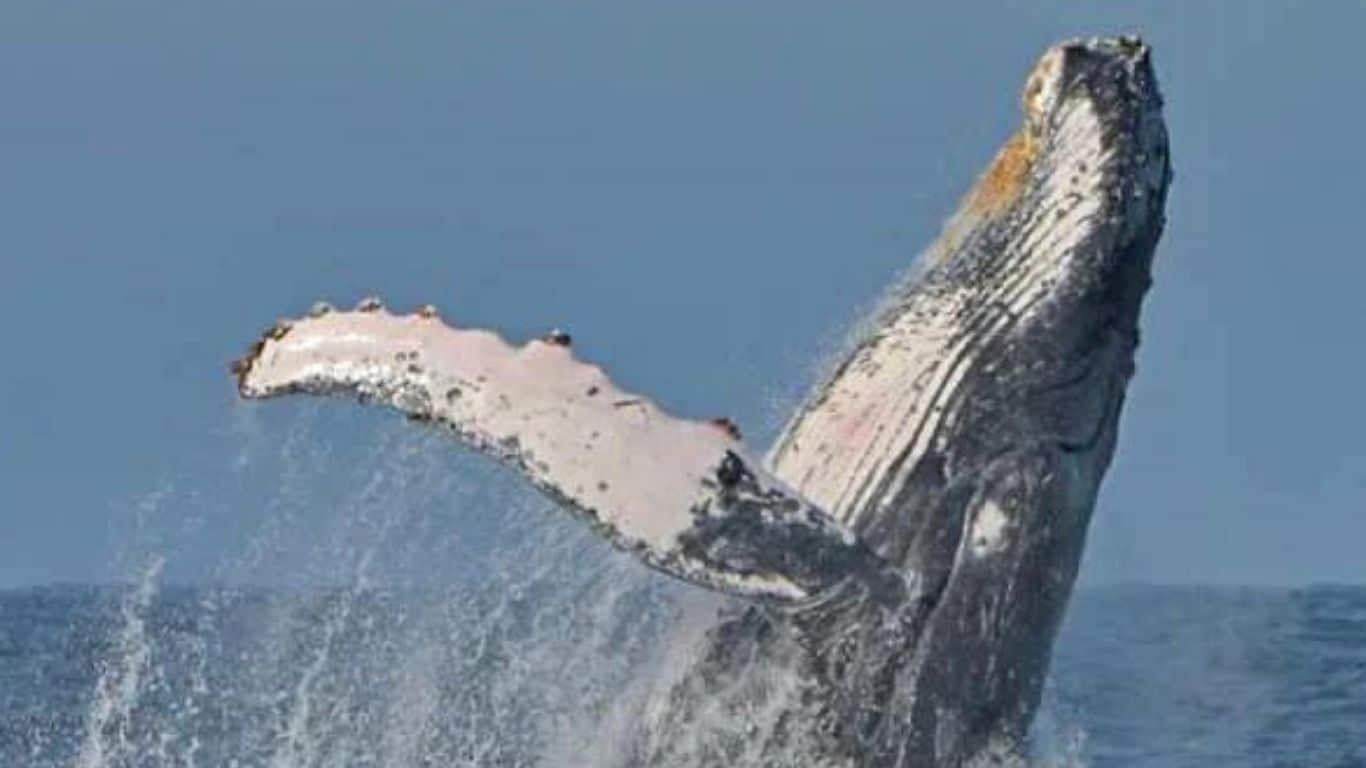 A grateful, freed whale
A grateful, freed whale
NSRI team members say that there is nothing more rewarding than setting a whale free – sometimes the freed whale will swim alongside the rescue vessel and stay there for a while, as if to say thank you, before swimming off into the great blue yonder to enjoy its freedom.
Please, help us support the National Sea Rescue Institute and their whale disentanglement efforts to help ensure the whales along the South African coastline may continue to live well-protected and free.


